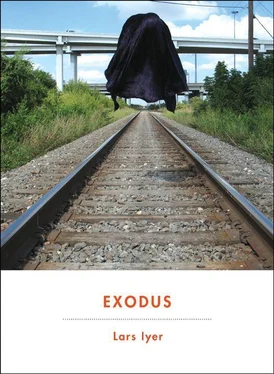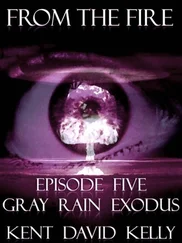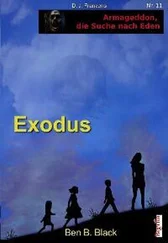A legal technicality , W. says. That’s what saved him. Which is ironic, because it was through a legal technicality that they tried to get rid of him.
His Union uncovered it. Something about the way the college management had had him marched off campus, when they suspected him of sedition … Something about interfering with his freedom of movement, with his freedom of speech … W. had a case for legal action against the College, his Union said. He could create bad PR for the College. Bad press!.. At a stroke, W. was unsackable.
A legal technicality . It’s the contingency of his salvation that bothers him, W. says. He was saved, but he might not have been. And if he was saved, it wasn’t because of anything he’d done. It wasn’t because of fate , or grace . It wasn’t because of his apology. It wasn’t because he’d been chosen in some way …
But he’s going to act as though he was chosen, W. says. As though he was saved by grace. As though a divine mission has been allotted to him.
That’s what our lecture tour is to be about, W.’s decided. Our great lecture tour of Great Britain, our last look at the ruins of the humanities. We are to investigate the conditions of his sacking ! W. says. The conditions of the destruction of philosophy at his university — of the destruction of philosophy in Britain — of the destruction of philosophy in the whole world! The end days are upon us, and we must witness them at first hand, W. says. The Pharoah is drowning the children of philosophy. — ‘Drink up, fat boy! there’s not much time’.
Newcastle. My office. The collected works of Kierkegaard, spanning the windowsill. W.’s always admired them — their sober spines, the different colours against which their titles appear, varying from volume to volume ( Point of View in charcoal, The Book on Adler in bronze, Fear and Trembling in a handsome burgundy). And then there’s the sheer bulk of them, with my improvised bookmarks sticking out at random. — ‘You mean you’ve actually read something!’ W says.
And I have read them. The books look worn, tired. — ‘Is that blood?’, W. wonders, of the blotches in the margins of Practice in Christianity . ‘Are those tears?’ There are even annotations, W. notices. ‘What did you write?’, W. asks, turning the book sideways. He can hardly make out a line. Iration — what does that mean? Livity — what is that?
Why is it that Kierkegaard attracts lunatics? W. says. He’s seen it before, with some of his more desperate students. The half-wild ones, who’ve come off the streets after years of destitution. The half-mad ones, who want only to lose themselves in some great task of scholarship, but who are made for anything but a great task of scholarship …
In truth, I know more about Kierkegaard than he does, W. admits. It’s my Danish connection. Of course, I’m only half Danish, W. says. Half Danish and half Indian, a peculiar combination, he says. He, of course, is Irish on one side of his family and from Jewish stock — Ostjude stock — on the other. The wrong background for Kierkegaard, W. says.
But he wants to understand Kierkegaard, W. says. Kierkegaard’s become fateful to him. Kierkegaard is the philosopher of despair , W. says, and it’s despair we’ll have to think, if we’re to confront the closure of philosophy departments in Britain. It’s the philosopher of despair we’ll have to read, if we’re to grasp the conditions of that closure, which is to say, capitalism itself .
I’m to be his guide in the mountains of Kierkegaard, W. says. His sherpa. I’m to carry his things. What should he bring? His learning , W. says. His years of study in the philosophy of religion. He’ll instruct me as we climb, W. says. He’ll point things out, and when he gets tired, I can give him a piggy-back.
‘God, what a racket! How do you do any work?’, W. says.
The sound of drilling, high pitched, then lower pitched as they cut through something. The fizz of a lorry’s brakes. The clattering of metal poles being thrown onto metal poles. A heavy chugging in the distance. The faraway throbbing of engines …
They’re rebuilding the campus, I tell W. They’re putting up new office blocks for the private partners of the university.
He requires silence when he works, W. says. Silence and calm, in his study in the pre-dawn morning, just the pigeons flapping their wings and cooing to annoy him, and Sal asleep in the other room.
Stand well clear, vehicle reversing : a warning from a tannoyed male voice. And now warnings overlapping with warnings, as many vehicles reverse: Stand well clear … Stand well clear … Stand well clear … And now a high pitched throb, very loud, like a helicopter landing. — ‘Surely a helicopter isn’t landing?’, W. says. ‘A helicopter couldn’t be landing …’
We walk out through the campus, through the narrow pedestrian routes left to us alongside the building works. W. feels so channelled , he says. We’re being route-marched , he says, staff and student alike, heads down and in lockstep. — ‘Where are they leading us?’, he says. ‘Where are we going?’
A thick smell — is it tar? They must be pouring tar. They must be making some kind of route for the lorries. A hiss, as of gas escaping. The high beeping of a reversing vehicle. — ‘They’re going to crush us!’, W. says.
We emerge safely into the quadrangle. — ‘They’re going to crush us’, W. repeats calmly. What use is philosophy to the private partners of the university? What use will it be to the new breed of the university, which is busy hatching from the old one?
‘How long do you think we’ll last?’, W. says. ‘How long before philosophy is destroyed altogether?’ Because there’s no room for us in this world, he says. No room for Kierkegaard and for scholars of Kierkegaard …
‘Are they shredding trees?’, W. asks, as we look back at the building works. Yes, they really are: we can see them cutting off the boughs with chainsaws, and feeding them into huge machines. Leaves fly up over the fence. And the smell: sap. The stuff of life, W. says, being shredded.
It’ll be our turn next, W. says. They’ll cut off our arms and legs and feed us into the huge machines …
Stand well clear … Stand well clear …
The Town Moor: escape. We wander through the knee-high grass. What are those birds? we wonder. What are those flowers? But we have no idea.
The Moor is like the world on the fifth day of creation, we agree — before Adam, before anyone, when everything went unnamed and unredeemed. It needs words, we agree. It needs a poet! Where is the Rilke of Newcastle to sing of the Moor?
Above us, a shore of clouds and then blue sky. — ‘That’s a weather front’, W. says. Which way is it travelling? Where is it heading? And where are we heading, we who walk beneath the shore of clouds?
Is the future open to us, or closed? W. can never decide. Are we making progress, or falling behind? W. can never decide that, either.
Alcoholics in the long grass, stretching their limbs and laughing, half-drunk bottles of cider by their ankles. Anyone can walk on the Town Moor, he likes that, W. says. Where the alcoholic can walk, he walks, W. says. And where the alcoholic cannot walk — where his way is barred by security guards or policemen — W. will not walk either.
Should we lie down in the long grass and drink ourselves to death? we wonder. Should we just give up — give up everything — and let death come and find us on the Town Moor? But we consider ourselves to have work to do — that’s our idiocy, and our salvation. We actually take ourselves to be busy — that’s our imposture and our chance of survival.
Читать дальше












